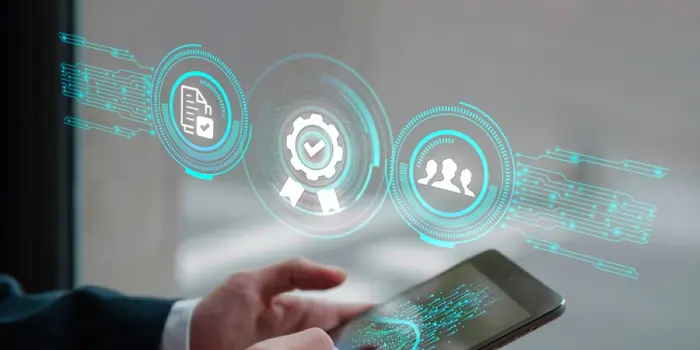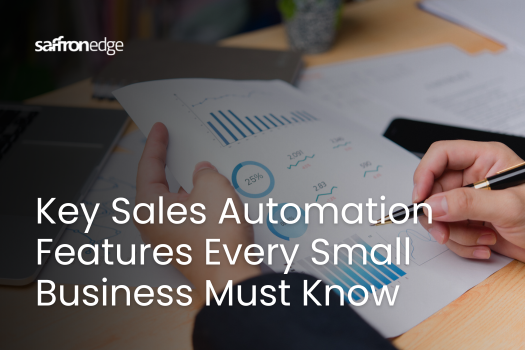How to Make Product Events Marketing Automation Work for Your Business?
Table of contents
- What is event-based automation?
- How does event-based automation work?
- How do I get the most out of event-based automation with event data?
- What are product events marketing automation tools?
- How does product events marketing automation work?
- Benefits of product events marketing automation
- How to start marketing automation for event management and engage users?
- Conclusion
Top-performing sales and marketing teams leverage event-based automation to boost their productivity.
By engaging prospects when they’re most interested, these teams utilize automated event planning and follow-up processes to increase their chances of converting leads into customers.
Automated marketing streamlines tasks and workflows, freeing resources and driving campaign traffic. Let’s dive into product events marketing and sales automation, exploring their workings and how to harness their full potential.
What is event-based automation?
Event-based automation is the process where specific actions or events trigger an automated response.
In sales and marketing, this usually means automatically sending emails or other communications in response to a prospect’s interaction with your website or other online resources.
Event marketing automation tools can automate various tasks related to event marketing, such as gathering and analyzing feedback, running live polls and surveys during events, hosting post-event surveys, and providing automated reporting.
An event marketing platform can automate tasks such as adding registrants, tracking ticket sales, and updating registration numbers for digital events and webinars.
How does event-based automation work?
Event-based automation operates on user-triggered actions, capturing and analyzing data to drive automated engagements tailored to individual user behaviors.
- Trigger Activation: Event-based automation hinges on user triggers such as newsletter sign-ups or online purchases, activating workflows to deliver personalized responses.
- Engagement Sequences: Upon trigger activation, event data analysis initiates a sequence of engagements, like sending welcome emails and targeted promotions based on user interests.
- Automation Software Integration: Marketing automation services like Zapier facilitate event-based automation by connecting applications through webhooks, enabling seamless communication and timely customer interactions.
Event-based automation, supported by marketing automation services , enables businesses to streamline communication, personalize engagements, and enhance customer experiences through timely and targeted responses.
How do I get the most out of event-based automation with event data?

Precision and strategy are key to maximizing the benefits of event-based automation. Here are some best practices:
- Precision: Ensure your triggers are specific. For instance, if someone downloads a product guide, add a trigger for when they reach a particular page in the guide.
- Customer Journey: Consider the lifecycle stages to align your sales and marketing activities with customer expectations.
- Segment Wisely: Segment your contacts, especially event attendees, based on their interests and actions to create targeted marketing automation workflows.
- Test Thoroughly: Regularly test your event-based automation to ensure it works as expected, especially for workflows involving multiple applications or time-specific events.
- Seek Expert Help: Don’t hesitate to ask for help from experts. At SaffronEdge, we offer custom sales workflow automation solutions, including auto-SMS, auto-calls, and email workflows.
What are product events marketing automation tools?
Product events marketing automation tools, particularly essential in CRM marketing automation for B2B SaaS companies and growth marketing initiatives, play a vital role in modern sales and marketing strategies.
Here is a list of advantages:
- Proactive Engagement: These tools enable sales and marketing teams to engage with prospects through event-driven triggers proactively, ensuring immediate outreach for increased engagement and higher conversion rates.
- Automated Outreach: These tools facilitate the automatic reach-out to prospects by setting up event-driven triggers, streamlining communication, and nurturing relationships with potential customers.
- Tailored Engagement Sequences: Product events marketing automation allows for creating tailored engagement sequences, accommodating the specific needs of sales and marketing teams for more personalized interactions with prospects.
- Effective Event Marketing Campaigns: These tools are crucial for managing effective event marketing campaigns, offering support for crafting compelling agendas, implementing cross-channel pre-event promotions, and utilizing event email marketing automation for personalized outreach.
- Growth Marketing Support: In growth marketing, product events marketing automation tools are indispensable for orchestrating seamless, targeted, and data-driven event marketing strategies, driving sustainable business growth and customer acquisition.
Let’s break through your revenue hurdles
We find your primary growth blockers, build expert-led strategies, and provide custom data-driven solutions to help you hit your revenue goals.
How does product events marketing automation work?
Product events marketing automation is driven by individual user behavior, utilizing triggers to activate tailored engagement sequences.
- Trigger Initiation: Product analytics marketing automationutilizes triggers such as newsletter subscriptions and online purchases, activating a sequence of engagements tailored to individual user behaviors.
- Multiple Trigger Responses: Once a trigger activates the automation workflow, email marketing automation sends a welcome message, followed by promotional content that aligns with the user's interests.
- Software Integration: Powered by software like Zapier, marketing automation utilizes webhooks to enable integration between various applications, ensuring timely and seamless communication with your prospects.
By leveraging email marketing automation and powerful software integration solutions, businesses can enhance communication with their prospects and drive sustainable growth.
Benefits of product events marketing automation
Here are the key advantages of product events marketing automation that enhances marketing strategies by bringing efficiency, engagement, personalization, and data analytics.
- Increased Efficiency: Automating repetitive tasks saves time and resources, allowing your team to focus on more strategic activities.
- Improved Engagement: Reaching out to prospects when most engaged increases the likelihood of conversions.
- Personalized Communication: Automation allows for personalized communication based on user actions, ensuring up-to-the-minute event details are shared enhancing the customer experience.
- Enhanced Reporting: Automation tools provide detailed analytics and reporting, helping you track the effectiveness of your campaigns and make data-driven decisions.
By leveraging this, businesses can optimize operational efficiency, drive engagement, deliver personalized communication, and use robust reporting to make informed decisions.
How to start marketing automation for event management and engage users?
Event marketing automation involves applying marketing automation functions to event-related tasks. Here’s how to get started:
- Choose the Right Software: Select a robust event management platform that offers comprehensive features like event registration, landing pages, mobile apps, and analytics. This is crucial for event planners to streamline their processes and enhance event engagement.
- Develop a Strategy: Create a marketing automation strategy with automated workflows and a framework for all decisions. Consider the frequency of audience contact, communication with other teams, and combining email outreach with remarketing.
- Appoint an Admin: Assign a dedicated marketing operations specialist to handle the technical aspects of automation, ensuring smooth implementation and management.
- Personalize Information: Use automation to access personalized information, allowing you to filter guest lists and tailor event reminders and promotions.
- Keep Data Updated: Regularly collect and analyze attendee data to keep it current and understand user behavior. This helps in planning future events and improving the attendee experience.
- Implement Chatbots: Use AI-infused chatbots to enhance customer support, automate user check-ins, and gather user information.
- Segment Invitations: Segment your audience based on demographics and interests to create targeted event invitations and content. This segmentation can help create personalized content for a virtual event for different demographic groups.
- Track Promotion Tactics: Measure the effectiveness of your event promotion efforts using UTM links and codes. This will help you identify successful tactics and areas for improvement.
- Automate Reports: Use analytics and reports to track event performance and automate email communications for better team performance and revenue generation.
Conclusion
Product events marketing automation and sales automation can revolutionize your sales and marketing efforts by automating repetitive tasks, personalizing communication, and enhancing engagement.
At SaffronEdge, we specialize in helping businesses implement effective marketing automation strategies. Our team of experts can assist you in setting up custom marketing and sales workflows, automating repetitive tasks, and maximizing the benefits of event-based automation.
Contact us today to learn how we can help you leverage product events marketing automation to achieve your business goals.
Drive Exceptional Growth without an In-House Marketing Team
We drive business growth by optimizing every inbound channel to attract and convert high-quality clients for you
Share with Friends
Outshine Your Competition Faster
Drive measurable growth through comprehensive, data-driven digital marketing strategies.
Talk to ExpertsSubscribe to our newsletter
Get fresh stories, case studies, and
advice
from successful creators and industry experts.

Subscribe now

Outshine Your Competition Faster
Drive measurable growth through comprehensive, data-driven digital marketing strategies.
Talk to Experts






